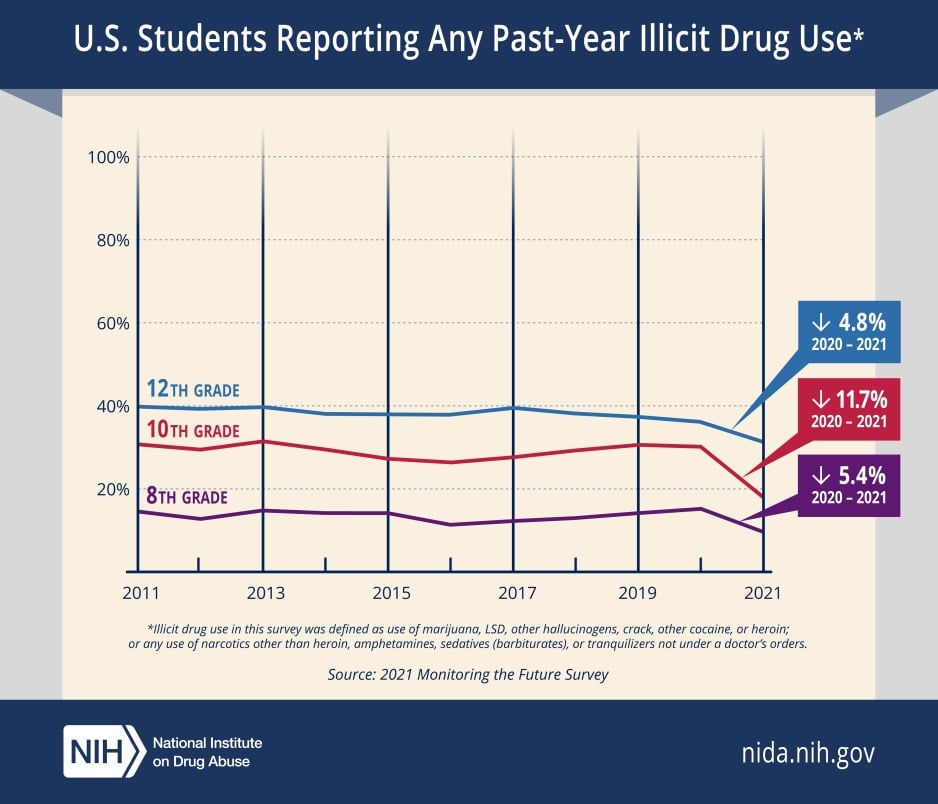Not all drugs are created equal and neither is all drug use.
Substance use falls into three categories:
- Experimentation (trying a new substance for the first time)
- Drug use (using the substance occasionally, however irregularly)
- Drug abuse (using frequently, overlooking the consequences of drugs due to compulsion or extreme desire to continue using.)
Most teens experiment with substances at some point. However, of those who experiment, most will not go on to use or abuse drugs.

How to set boundaries with your teen about substance use:
When talking to your teens about drug use, it’s important that you take a hard stance without becoming angry. You want to be clear and calm. Anger, shouting, and ranting harms your relationship with your teen and your teen’s self-concept. Drug use is more likely when teens have a bad relationship with their parents. Prioritize keeping the lines of communication open.
At the same time, be consequential and do not rescue your kids. Instead of giving them orders, let your teens know your thoughts on experimentation, use, and abuse of substances. Find fact-based articles about drugs to give to your teen. Provide straightforward and informative evidence. We love this collection of scientific articles from NIDA. Let them know why people engage in drug use and the consequences of substance use. Girls in particular, need to understand the effects of drug use during the first trimester of pregnancy. Also, let them know your limits with substance use and the consequences they may encounter if they cross your limits. Be sure to discuss fentanyl as a major concern with modern-day drug use and how to navigate it.
Parents are obligated to take care of themselves, so make sure you communicate that to your teen. Parents are an accessory to the crime if drugs are found in the home. Let your teen know that if necessary, you will call the police and permit them to search the premises. Similarly, if your teen is drinking and driving, tell them you will simply phone the sheriff and give them the license plate number. You are not willing to participate in risking their and others’ lives on the highway. Let your teens know about your limits with the law. We recommend you communicate very directly that all drug users must deal with the law on their own. Be clear you will not bail them out.
State these realities matter-of-factly and lovingly. They need to know that you don’t want to live with the guilt of having them kill someone or hurt themselves. Statements about yourself and not being an accessory are more effective than lecturing your teen.
Signs of teen substance use:
- Worsening school grades
- Sudden friendship changes
- Sometimes drug abusers have mood and attitude changes for no apparent reason
- Know your stuff. Marijuana gives you red eyes, mushrooms expand your pupils, and opiates minimize your pupils or “pin” your eyes
- Highs are often followed by depressive lows
What to do when you suspect drug use:
- Remain calm
- Talk it over with your teen
- Talk to the school counselor
- Find out if your teen’s friends + siblings are concerned. (this is not about them ratting out your teen. It’s about seeing how destructive their behavior is.)
- Get professional support.
Guidelines for finding professional care:
- Find a therapist who has a busy schedule with many clients.
- Seek out satisfied clients. Ask the therapist to give a list of clients you can talk to.
- The therapist should be willing to give you 30 free minutes to talk.
- Does this therapist have a good life? Do they seem well-adjusted and happy?
- Get professional recommendations from your school, hospitals, or other professionals working with teens.
Let Antelope Recovery help your family
Having an open and honest conversation with your teenager about substance use is an essential step in ensuring their well-being. It’s not just about imparting knowledge but also about fostering trust, understanding, and empathy. At Antelope Recovery, we understand the complexities of these discussions and offer family therapy, parental counseling, and teen support programs to help facilitate these critical conversations. If you’re concerned about your teenager’s substance use or want guidance on how to approach this topic, don’t hesitate to reach out to us. Together, we can empower your family to navigate the challenges of substance use with knowledge, compassion, and support, ultimately leading to healthier choices and a brighter future for your teenager.


